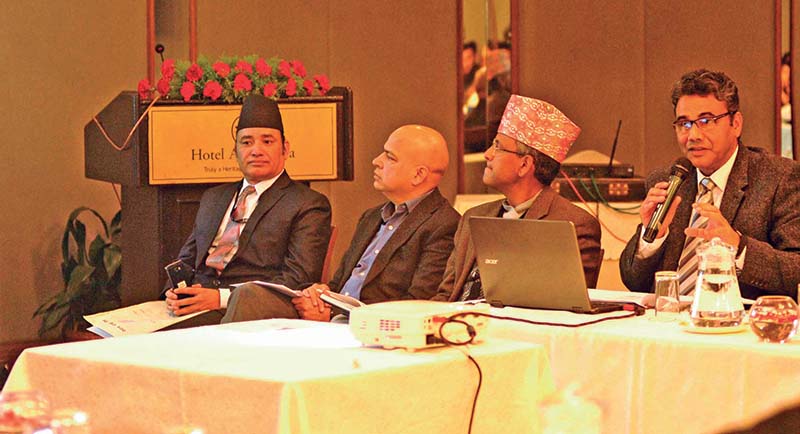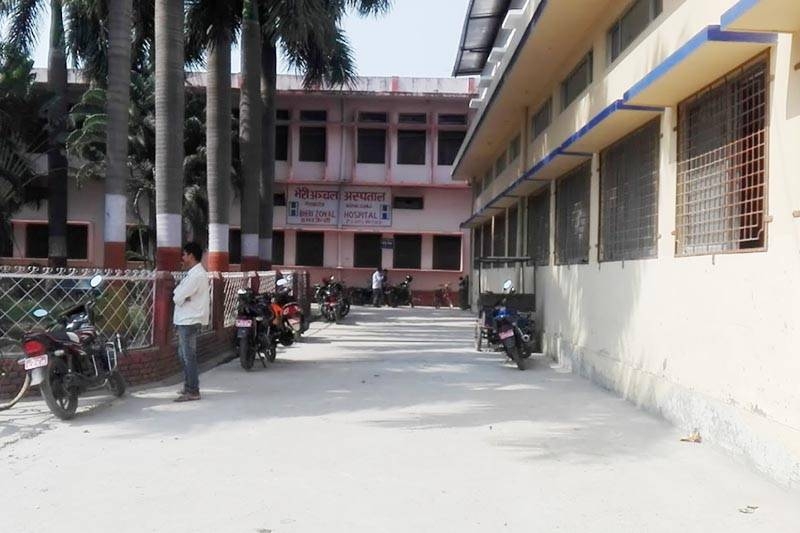MoF not serious about rising trade deficit
MoF not serious about rising trade deficit
Published: 04:51 am Jan 04, 2018

Kathmandu, January 3 Though the country’s trade deficit has been widening alarmingly, the Ministry of Finance (MoF) has not shown seriousness towards it. Citing the numerous efforts of the inter-agency coordination and proper execution of the industrial and trade policies, Chandra Kumar Ghimire, secretary of the Ministry of Commerce, said that the revenue policy takes precedence over other policies. “Sometimes I am confused on whether we are supporting domestic production base or promoting imports for revenue,” Ghimire said, adding, “The country cannot sustain the rising imports in the long run.” There has to be an overhaul in revenue policies, which needs to support domestic production, value addition in intermediate goods and link the production units to the global value chain, he asserted. Ghimire further said that many countries are smartly playing with the non-tariff measures for exporters despite being party to the World Trade Organisation (WTO), but Nepal being a least developed country has no policy to manage imports. He also said that it will be difficult to achieve results until the concerned authorities set a common target to minimise the trade deficit. Similarly, senior trade economist Posh Raj Pandey, who is also the executive chairman of South Asia Watch on Trade, Economics and Environment (SAWTEE), presented an example of Cambodia and Vietnam that have enhanced their productive capacity and urged the government to differentiate the import of consumable goods and the import of raw materials, intermediate goods and capital goods, which will support productive capacity enhancement in the future despite such imports creating a trade imbalance for the time being. Pandey also advised the government to invest in human resources, infrastructure, and technology and bring reforms in procedural, legal and administrative aspects to attract fresh investments. Fixed exchange rate regime between India and Nepal is harmful for Nepal for enhancing productive capacity as cheaper imports from India make the industries of Nepal ‘less competitive’, he stated. Also speaking in the programme, Shekhar Golchha, senior vice-president of the Federation of Nepalese Chambers of Commerce and Industry, highlighted that the worst-case scenario for Nepali industries is over and the government should take some innovative measures to make the industrial environment conducive and link Nepali production units to world production network. Likewise, Executive Director of Nepal Rastra Bank, Nara Bahadur Thapa, said that as two-thirds of the trade has been taking place with neighbouring India, the government needs to have a rethink on the conventional approach and diversify the market opportunities. “Attracting foreign direct investment that can link the Nepali industries to the world production network could be beneficial as many countries across the world have been taking advantage of fragmented mode of production,” he mentioned.



